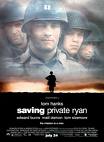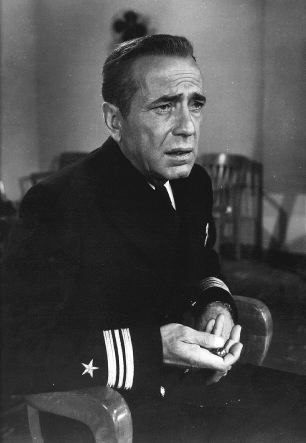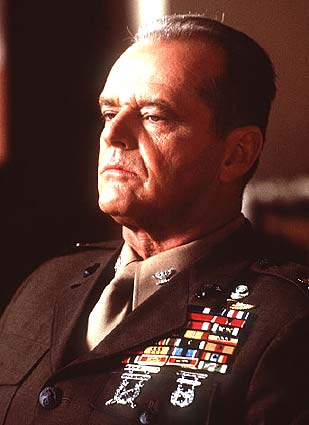Interview: Civil War Filmmaker Ron Maxwell of “Copperhead”
Posted on June 23, 2013 at 8:00 am
Copperhead is a new movie based on the novel by Harold Frederic, who witnessed these conflicts firsthand as a small child, Copperhead tells the story of Abner Beech, a stubborn and righteous farmer of Upstate New York, who defies his neighbors and his government in the bloody and contentious autumn of 1862. The great American critic Edmund Wilson praised Frederic’s creation as a brave and singular book that “differs fundamentally from any other Civil War fiction.”
http://www.youtube.com/watch?v=F_SHERZJvBwTell me about this new movie.
Copperhead is based on a novel written in the 1890’s by Harold Frederick. Harold Frederick was a young boy during the Civil War, and he lived through it. He lived in upstate New York, and later, when he began to write novels, he wrote a number of novels that all take place in that part of New York. And if you want to know about rural America in the north in the 19th Century, he’s a wonderful author and a great window into that world, the same way that Charles Dickens, for instance, is a window into the world of Victorian England at the same time. Through Oliver Twist and David Copperfield, we know as much about Victorian England as we do by reading historians like McCauley, etc.
Even though it’s a work of fiction, it’s a wonderful window into that world. So when I came across it, it was very intriguing on many levels. First and foremost because it explores dissent. Dissent, as we know, is protected by the Constitution in the First Amendment to the Bill of Rights, and it’s very much a part of our national fabric and our national history. There have always been dissenters, minority opinions that have over sometimes the course of time, as we know, become majority opinions. What’s interesting about the book that Harold Frederick wrote is that he wrote about a man who was very convincing, a farmer that he might have known and people that he might have known. Even though it’s a fictionalized account, it’s set in 1862 within historical events that really happened.
It was the year that the war was escalating, big battles were being fought–Antietam was fought that fall, that September. And in that fall, the November election of 1862, what became derisively known as the Copperhead movement–that was a name given by Republicans and war supporters to the dissidents. It was a contemptuous term, derisive term, an insulting term hurled at those who were against the war. And after a while, those who were in that position in the north wore it as a badge of honor. And they actually wore copper pennies to kind of boast that they were Copperheads. Well, in the election of 1862, the peace Democrats, Copperheads, swept much of the elections in the north. Of course, not in New England because New England was hardcore Republican, pro-war, but across New York State and the Midwest, they won governorships and mayorships and a huge electoral repudiation of the Lincoln administration. So it takes place during this year that is mostly remembered for the big battles that were fought and very little for the anti-war movement that was raging in the north.
What is it about this era that particularly draws you?
I have always been a student of history. You know, that never stops because you stop getting a formal education in school. And if you’re a naturally curious person, you’re always reading and studying–whether that’s fiction or non-fiction. I started at a very early age as my father read to me and my younger brother before we could read. And once we could read ourselves, it became a wonderful acquired habit. And I still have many books on my nightstand before I go to bed, and I have to decide which one I want to read because I’m always in the middle of a half-dozen or more: fiction and non-fiction, poetry and history and biography. But at an early age I certainly became interested in history–in world history, but certainly in American history too. And my father took us–my brother and I–to sites that were within driving distance, you know when I was growing up in the Fifties. And I grew up in northern New Jersey, and so I mostly visited colonial historical sites: French and Indian War and Fort Ticonderoga and Lake George, etc. Wonderful road trips and forays and day trips, but I didn’t see a Civil War battlefield until after I read The Killer Angels. It won the Pulitzer Prize in ’76, the Pulitzer Prize for fiction. I read it in ’78 and that started–a rather well-known now–fifteen year saga from the time I read the book to the time it appeared on movie screens, a fifteen year saga to have it made into a movie. So that was the first time I visited a Civil War battlefield, in 1980. A couple years after I optioned the book, I visited a battlefield over a three day period, and my tour guide was none other than Michael Shaara, who wrote The Killer Angels.
It was three days I’ll never forget because he took me through the three days as he wrote about it in his novel. Of course, anyone who’s been to a battlefield knows that you need more than three days to really absorb the whole thing; you need at least a week or multiple visits. He took me through the three days as he wrote it in his novel, which as we know is focused on Joshua Lawrence Chamberlain and the 20th Maine, on Lee, Longstreet, Armistead, Hancock, etc. So my interest in the Civil War started in my youth. I always studied it; I loved reading about it. But I didn’t actually visit a battlefield until I was thirty, thirty-one. And I didn’t know when I started that it was going to take fifteen years to make that movie nor did I know that I’d still be working on Civil War movies twenty-five, twenty-six years later. But it just kind of worked out that way.
What is it about the Civil War that continues to be so enthralling to us, 150 years later?
I’ve had some time to think about it and how to explain my own passion for it. And the hundreds and hundreds of people I’ve met over the years, whether they’re historians and novelists or re-enactors or members of Civil War roundtables. It is certainly a deep and abiding interest; it’ll probably never go away as long as there’s an America. But even after America in some distant future, the way we go back and look at the Peloponnesian Wars or the wars of antiquity, whatever the civilization is in years to come, I think the Civil War resonates. It resonates in a universal way, and I’ve seen this, I’ve been at screenings of my films in Europe and Central America. So I know that people recognize it, even if they don’t know American history.
What do they recognize? They’re attracted to and fascinated by fratricide because fratricide and civil wars are going on right now. They’re part of the dark side of human nature. And on the one side of the coin is brotherly love and on the other side is fratricide. And it’s always been with us; it started with Cain and Abel, and sadly it will probably always be with us. The American Civil War is such a vivid example of such a tragic flaw in humanity. So that’s why I think it’s recognized universally, wherever it plays. I’ve seen it play in Helsinki, and it reminded the panel afterwards of their civil war in the nineteen-teens. I’ve seen it play in Madrid, and after you meet the Spanish journalists and historians, right away they’re talking about the Spanish Civil War. So it has that international, universal resonance, but I think for Americans, it’s even deeper.
First of all, besides the Indian wars that started in colonial times and finished at the end of the nineteenth century, it’s the only other war that was fought on our soil among Americans. I guess you could say the other wars were fought among Americans: the French and Indian War divided American colonists, the American Revolution certainly divided colonists–that too, you could argue was a civil war because Americans were fighting Americans.
But the American Civil War was kind of the apex, the climax in American history of Americans fighting Americans. And it was fought here, right in our backyards. You and I, we both live in Virginia, you can’t throw a stone without it landing in a Civil War battlefield or a Civil War graveyard or a Civil War site of some kind or another. It’s with us. Also, we’re not that far from it. 150 years is just a few generations, and the old-timers, the people in their 80’s and 90’s and 100’s now, can remember the stories of the grandparents who lived in it, who lived it firsthand. We’re not that far removed, actually. And also, I think, another reason the war resonates is because it decided some things for sure. It held the Union together by force, but it held it together. It abolished slavery; it emancipated the slaves. There are certain things the war did. It also killed over 700,000 people, and it maimed or wounded a million and a half or more. It destroyed practically the whole infrastructure of the south. It was cataclysmic. And even though some things were politically decided, the underlying issues are still with us.
What am I talking about? I’m talking about States’ Rights. Where does sovereignty lie? Does it lie with, does the country reside in Washington, DC with the politicians? Or does it reside with the individual citizen no matter where he lives? Or does it reside in the community? Or does it reside in the states? These things are still argued about! We just argued about the Second Amendment. We’re talking about sovereignty issues now when we talk about immigration and illegal immigration and the borders. And the states say, Arizona says, “We’ve got to be able to protect our borders.” And the Federal government says, “No, it’s a Federal issue.” So all of these issues of Federalism, States’ Rights, centralized government, decentralizing government, the same things our founding generation talked about when they drafted the Constitution, the same things they fought about in the Civil War are still with us now. So for all these reasons, I think the Civil War is a touchstone. And not the least of which: race! We still have racial questions in our society. Slavery was at the center of the Civil War. And that’s another reason why I think it’s based in our consciousness. And finally, I don’t want to leave what I think is one of the most compelling aspects: that the Civil War, as tragic and bloody as it was, created heroes. It created these mythic heroes, and they were real people; they were flesh and blood; they were flawed; they were not angels, but they are heroic in our national history, whether they were wearing blue or they were wearing gray. And that is very compelling and very appealing, and these are the stories that novelists write about and the stories that are made into movies.
What do you want people to talk about as they’re driving home from seeing this film?
I really assiduously and meticulously and rigorously stay in the time frame. This movie takes place in 1862; I don’t even step into 1863. And I’m very disciplined about that with the script, the actors, with how we shoot it and how we edit it. So we don’t make moral judgments about people. Well, I don’t, I don’t. I don’t think it’s useful in a motion picture; I think that’s for historians to do, it’s for journalists to do; that’s to do in other forums. But movies are woefully inadequate at answering questions; as soon as they try to do that it comes off as propaganda. But movies are powerful and effective at asking questions. So this novel that’s been translated into a film is asking some pretty big questions. What is the role of dissent? What is the cost of dissent? What is the personal price of dissent? We as an audience are used to relating to dissenters, but usually we relate to the dissenter when the history is already vindicated his position. So we relate to Galileo; we relate to the people in the Massachusetts Bay Colony, who were saying, “You should not burn the witches.”
We relate to Darwin when he was being criticized. Because they were kind of vindicated by history. But here we have a guy who’s called a Copperhead, and, in fact, history did not vindicate him. If anything, our historical consciousness and our received wisdom as a culture–right or wrong, and I’m not taking a position, but right or wrong–our received wisdom is that the Civil War was inevitable, that it needed to be fought, Lincoln was a great president. And so here we have a guy who does not agree with those things. In real time, he is in opposition to all that.
And so we have to ask ourselves: how much do we really care about dissent even when you don’t agree with the dissenter? How important is this? So it raises these fundamental questions about that. It also raises the question about how we treat one another. Because in 1862, we weren’t treating one another so well, were we? His neighbors look upon him as a pariah because he’s in the minority, a tiny minority.
And that’s why on the poster it says, “Copperhead: Patriot to Some; Traitor to Others”. Copperheads were called traitors; people wanted to hang them. In that sense, it’s a mirror to our own times. Again, I leave that to the audience to kind of see or not see. But, you know, the other question in the movie, can’t help but asking after the movie is: how are we treating each other now? Are we listening to one another? Are we really listening to our neighbors or even across the kitchen table, members of our own family? I think it’s not an exaggeration to say that we have a pretty degraded political conversation going on now. There’s a lot of shouting going on, not a lot of listening, not a lot of tolerance. And it’s getting less civil by the day. So I think this movie raises that question: do we want to continue down this road of incivility or do we want to start showing a little more respect and a little more understanding to people who disagree with us?


 9.
9.  These two movies, one set in WWII and one contemporary, both center on court martial trials with similar themes — what price do we pay for the luxury of feeling safe?
These two movies, one set in WWII and one contemporary, both center on court martial trials with similar themes — what price do we pay for the luxury of feeling safe?